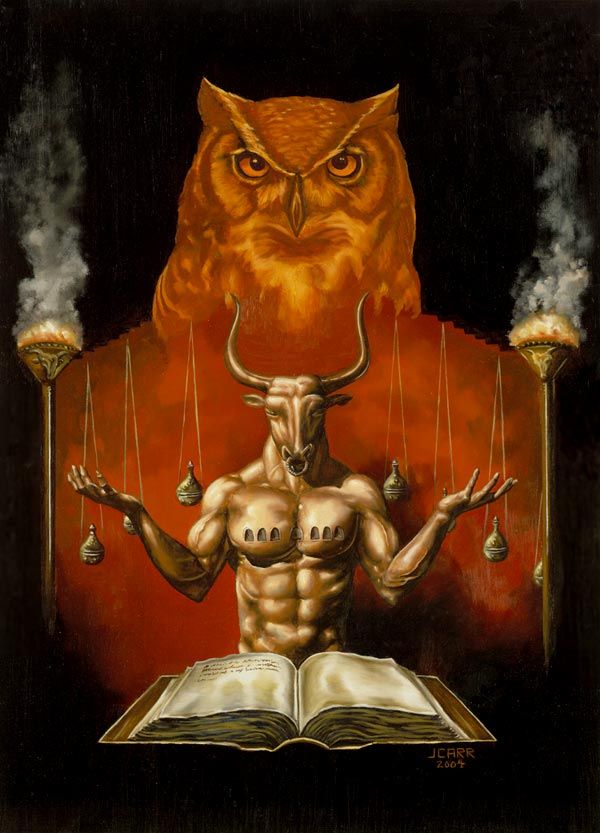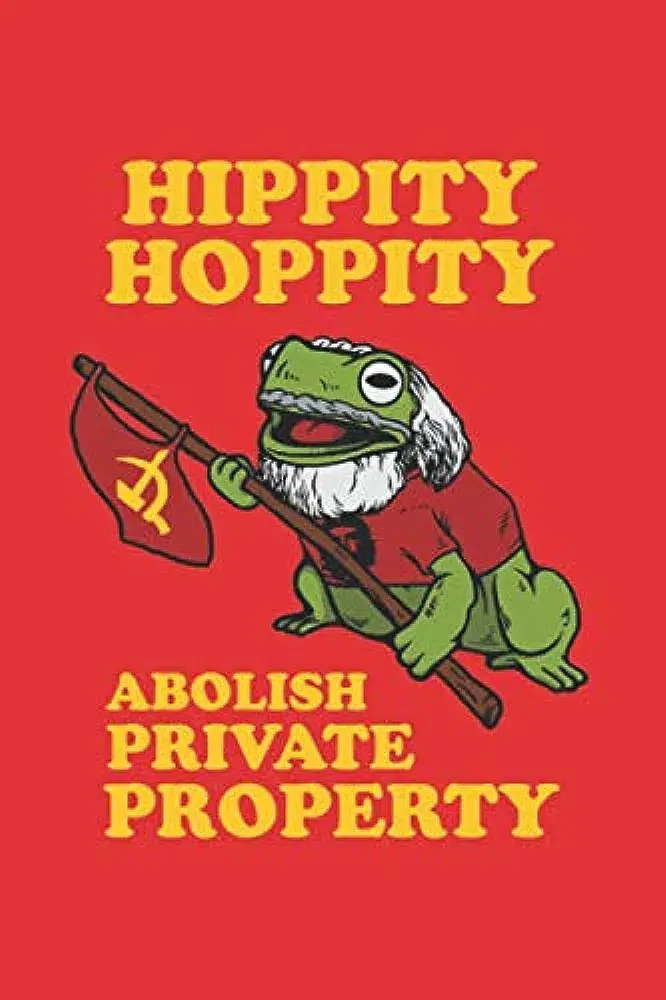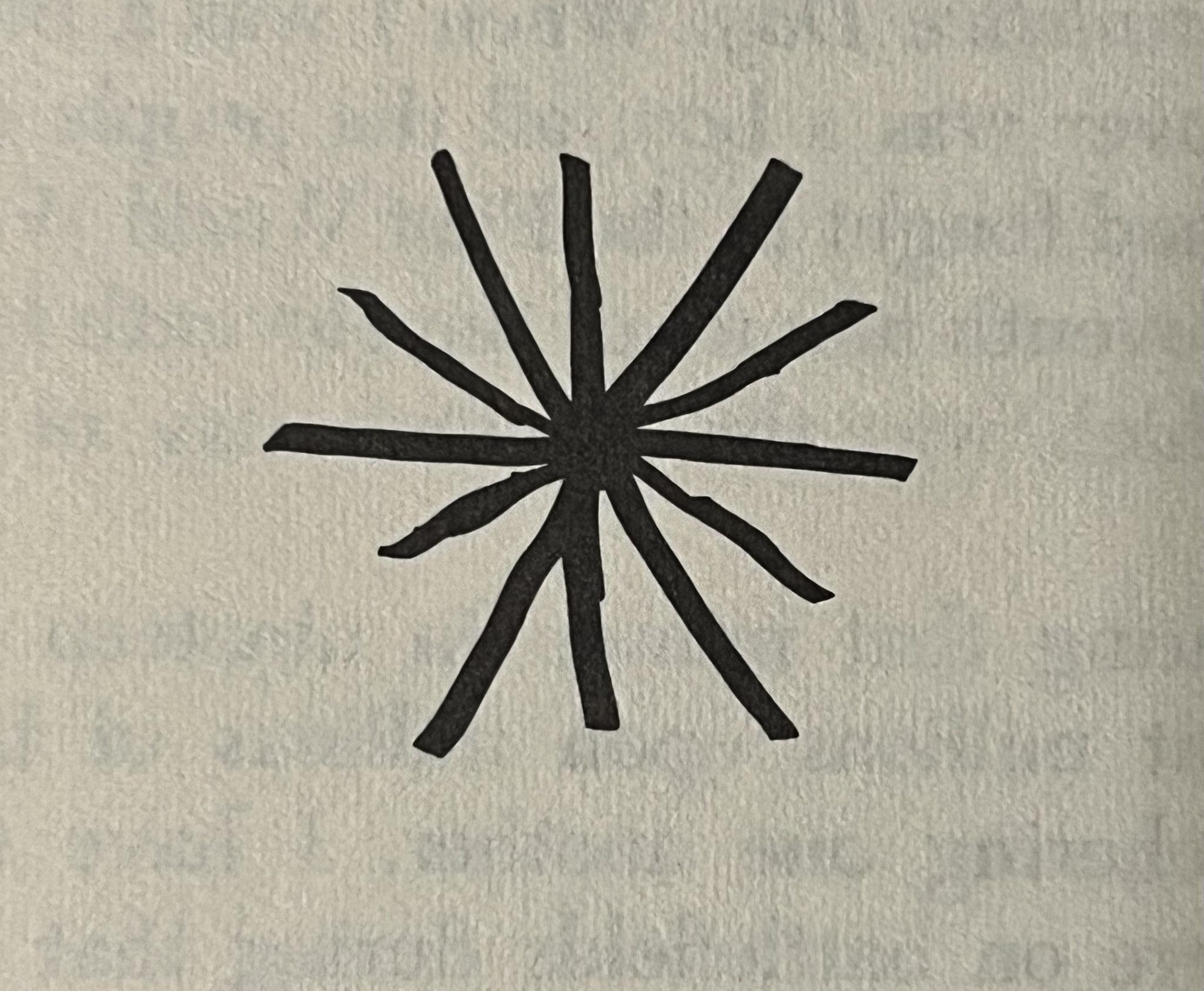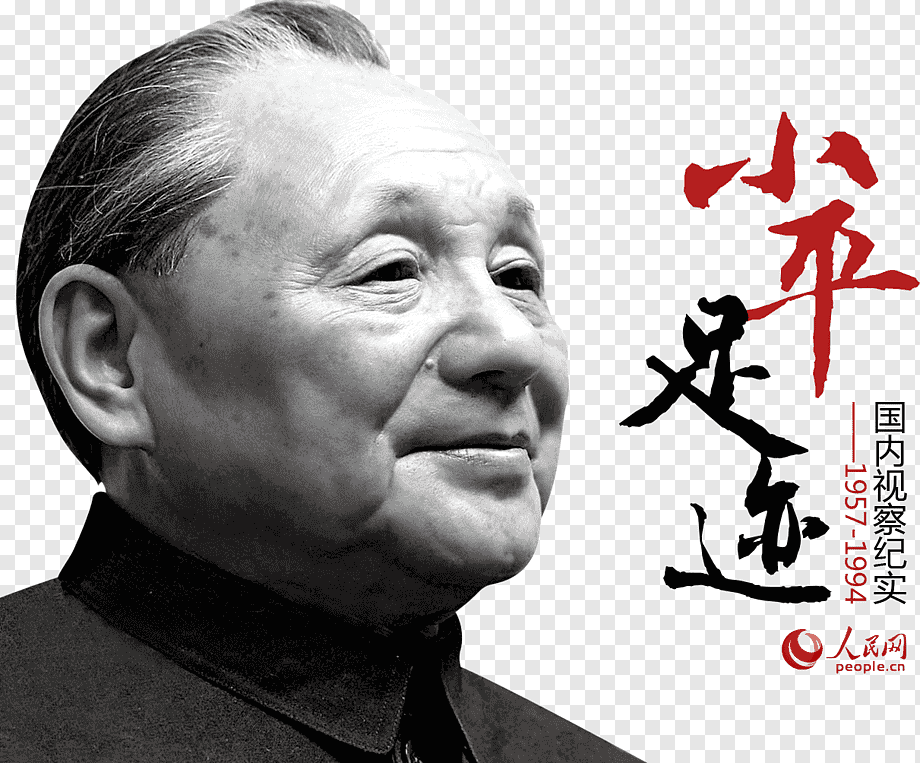Format
-
Reading Volumes 1, 2, and 3 in one year. This will repeat yearly until communism is achieved. (Volume IV, often published under the title Theories of Surplus Value, will not be included, but comrades are welcome to set up other bookclubs.) This works out to about 6½ pages a day for a year, 46 pages a week.
-
I’ll post the readings at the start of each week and @mention anybody interested. Discuss the week’s reading in the comments.
-
Use any translation/edition you like.
Resources
(These are not expected reading, these are here to help you if you so choose)
-
Harvey’s guide to reading it: https://www.davidharvey.org/media/Intro_A_Companion_to_Marxs_Capital.pdf
-
A University of Warwick guide to reading it: https://warwick.ac.uk/fac/arts/english/currentstudents/postgraduate/masters/modules/worldlitworldsystems/hotr.marxs_capital.untilp72.pdf
Week 1, Jan 1-7, Volume 1, Chapter 1 ‘The Commodity’
@invalidusernamelol@hexbear.net @Parsaniv@hexbear.net @Othello@hexbear.net @Pluto@hexbear.net @Lerios@hexbear.net @ComradeRat@hexbear.net @heartheartbreak@hexbear.net @Hohsia@hexbear.net @Kolibri@hexbear.net @star_wraith@hexbear.net @commiewithoutorgans@hexbear.net @Snackuleata@hexbear.net @TovarishTomato@hexbear.net @Erika3sis@hexbear.net @quarrk@hexbear.net @Parsani@hexbear.net @oscardejarjayes@hexbear.net @Beaver@hexbear.net @NoLeftLeftWhereILive@hexbear.net @LaBellaLotta@hexbear.net @professionalduster@hexbear.net @GaveUp@hexbear.net @Dirt_Owl@hexbear.net @Sasuke@hexbear.net @wheresmysurplusvalue@hexbear.net @seeking_perhaps@hexbear.net @boiledfrog@hexbear.net
Pro tip, don’t skip the footnotes
When the footnotes cease being footnotes and the body text becomes a header

Let me know if you would like to be removed from the notification list or added to it.
For me, I’m fine with it.
put me in coach
Sign me up

Yeah, add me please.
Would you add me, please
Yes, I’d like to join as well!
Please add me to the list! I’m ready!
Edit: I’m already on. Thanks!
I would like to be added
Add me, please!
I need to become

me
Yes please comrade
Add please
Done
put me in! let’s do this
sign me up
deleted by creator
hell yeah i’m ready



Oho, thanks

Will each week be in this post under a parent comment like this? Or is this whole post Week 1, next week will have a Week 2 post, etc?
Discuss under the parent comment.
That’s the current plan. Is there a reason I haven’t thought of not to do it this way?
PS: See below. I’ll make threads for each chapter
I think it can work both ways. I haven’t done a bookclub through a forum like this before so idk what the norm would be. Weekly megathreads seem to usually have their own post, which to me makes sense firstly as a way to weekly advertise the club on the front page, secondly as a way to silo off the old threads if desired by locking them. As well, having everyone post under a parent comment seems prone to user error if people don’t follow the rule instinctively.
That said, it’s a small club and I don’t think it is a big deal which direction is chosen.
I agree, I’d rather have a weekly thread then coming back to the same thread for a year.
Ok, we will do that.
uh-huh, good points
I’m just feeling this out, so I appreciate the input
Count me in! I need an excuse to get back into reading lol
I’m in too
Ok fine, I’ll quit being a lib and read some large adult theory

We love our big adult son, don’t we folks
I have finished sections 1 and 2 just now. I have already a lot to chew on, and questions that I would ask if I weren’t pretty sure that they all get answered later on (or even in what I already read, if I just comprehended it better). I looked at David Harvey’s guide beforehand and it would certainly seem like I’m not alone in this.
Actually, you know what, having questions but not asking them for fear of embarrassing oneself is for
 s:
s:What is price? It would have to be some combination of use value and exchange value, right?
Edit: Ope, I’m supposed to discuss under the parent comment, sorry!
I like how Radhika Desai describes it: value is like gravity. The “value” of a commodity is an object (or really, the gravity of that object) and price moves around that object like comets and planets move around the sun, if that makes sense.
Value is what determines price all things being equal, but in reality all things are not equal. There are an uncountable number of factors that move the price off the value.
Similar excerpt from Value, Price, and Profit (basically a cliff notes version of Capital):
Excerpt - supply and demand do not explain value
“Supply and demand regulate nothing but the temporary fluctuations of market prices. They will explain to you why the market price of a commodity rises above or sinks below its value, but they can never account for the value itself. Suppose supply and demand to equilibrate, or, as the economists call it, to cover each other. Why, the very moment these opposite forces become equal they paralyze each other, and cease to work in the one or other direction. At the moment when supply and demand equilibrate each other, and therefore cease to act, the market price of a commodity coincides with its real value, with the standard price round which its market prices oscillate. In inquiring into the nature of that VALUE, we have therefore nothing at all to do with the temporary effects on market prices of supply and demand.”
Now, this concept of an ideal price was not innovated by Marx. Adam Smith (regarded by Marx as one of the two great political economists, along with David Ricardo, in Capital chapter 1 footnote 33) thought of this as well and called it natural price.
In fact, Marx was not even the first to come up with a labor theory of value. Adam Smith, a man held in esteem today by modern bourgeois economists, actually himself based his theory on a labor theory of value.
Capital is Marx’s original ideas posed as a critique of political economy (hence the subtitle). So he took these ideas that had already been put forward by Smith, Ricardo, and others, and carried them out systematically to their conclusion, in some aspects more consistently than the original authors.
A flaw in Adam Smith’s theory of labor is the mud pie argument so often thrown at Marx, when really Marx made the theoretical advancement that overcomes it. Smith did not determine what kind of labor creates value and hence counts as social labor. So, someone who makes something socially useless, like mud pies, all day could earn an income in Smith’s model.
What distinguishes Marx’s labor theory from earlier theories is in his recognition of the dual character of labor1, that a singular act of labor is regarded in two different ways in the real practice of capitalism. On one hand, concrete labor produces use values, but on the other hand, abstract labor produces value. Throughout capital, concrete ≈ natural/physical, and abstract ≈ social. All societies produce use values, but only in the capitalist epoch does society behave as though these use values have a distinct property called value, due to being commodities.
1 - Letter from Marx to Engels
”The best points in my book are: 1) the two-fold character of labor, according to whether it is expressed in use value or exchange value. (All understanding of the facts depends upon this.) It is emphasized immediately, in the first chapter; 2) the treatment of surplus value independently of its particular forms as profit, interest, ground rent, etc.”
The elementary expression of the relative value of a single commodity, such as linen, in terms of the commodity, such as gold, that plays the part of money, is the price form of that commodity.
In other words, price is the expression of a commodity’s value through its relation to the money commodity. Alternatively, its “exchange value in terms of money”.
In a market of N total commodities, each commodity has (N-1) relative expressions to other commodities which are all valid expressions of its value; but exactly one of these expressions has money as the equivalent. This one special expression is price. Notice that there is nothing essentially different about price compared to all the other relative expressions. What makes price stand out is that, in practice, the money commodity is used as the universal equivalent.
I would note this question as it will be considered more in detail in later chapters, I think chapter 3.
That’s what tracks according to what was already laid out in these first two sections, and according to what I’ve heard from others, but it still confuses me to think that the actual quality of something does not affect its price.
I mean, surely if two of the exact same thing were made in the exact same timespan, but the one was made in a sweatshop while the other was made in a factory with good conditions and pay, then the latter would be more expensive, right?..
…
…Oh, the latter would just be overpriced, wouldn’t it?
Correct. There is a single market price, and competition forces all producers to a minimum of labor expenditure.
If the quality of something is inseparable from what it is, say a gold bar with 99.99999% purity compared to a gold bar that is 98% pure, then you can consider them as two separate commodities because the labor process is distinct for each, and they will have different prices reflecting that.
The method in this chapter is one of observation, observing the real behavior of capitalist society. It is a fact that there are “going rates” for things, quantitative relations between all the commodities (mainly with money, ie prices).
This is basically the Hegelian immanent critique. That is outside the scope of this book, but I thought I would mention it. The commodity is being considered strictly by its own internal logic, without imparting what we already “know” about it. As much as possible, we are observing as it exists in itself and as it relates to other things.
Mindblowing!
Is the value of money also treated later? Seems like money has an exhange value that in some manner should equate to the labor expended to produce it. But this labor quantity appears relatively low, and does not vary much between $1 and $100 notes. Does this constitute an exception (e.g. the value of the banknote is representative), or is the labor involved in making money somehow more complex than just the physical process of manufacture?
It will be discussed especially in chapter 3, which is notoriously one of the most difficult chapters of vol 1. The first three chapters lay the foundation, then the rest is the consequences.
For now I will just say that money as you mention it having minimal labor cost is just a token for an underlying money commodity. How this exactly works today with respect to fiat currency is beyond the scope of volume 1 but is an active area of discussion in Marxist scholarship.
Edit: on second thought I don’t remember if Marx directly talks about token money as such in chapter 3. But he does talk about it in his 1859 critique of political economy which was the precursor for Capital.
Try to understand the money commodity first, and then all the various functions of money (money of account, money as a measure of value, etc.) all explained in chapter 3.
Nice, I’ll keep that in mind. For now, I’ll think of money as mainly gold coins or something similar which actually would have a labor expenditure corresponding to its value.
good way to start the year
Oh shit oh god what have I commited to
It’s about 10 minutes per day
10 minutes of precious TikTok time! fuck!
It takes me ten minutes to read three sentences!
They’re German sentences, so that sounds about right.
Thats not so bad
noice
I say go for it.
You in 1 year:

OK, I’m joining. Now or never

Guess I have no excuse now. Let’s do it.
This will repeat yearly until Communism is achieved
Im gonna be reciting this shit from memory when the revolution finally comes to the imperial core lmfao
anywhere where the entire book is posted free online?
https://marx.capital currently links to that page as well. It’s handy!
best use of a custom tld I’ve ever seen
Here’s a YouTube playlist of the audiobook. I might be biased but I find this guy’s voice very clear and easy to understand: https://www.youtube.com/watch?v=GmgycyY5saM&list=PLUjbFtkcDBlSHVigHHx_wjaeWmDN2W-h8
thank you!
What is the relationship between labor and labor-power?
Idk… labor-power is the maker’s skill and labor is its result?
“Labor” is just actual work. In this sense I think “labor” is a verb.
“Labor power” is the commodity of labor. When I sell one hour of my labor to a capitalist, I am selling my labor power as a commodity. I’m selling my labor in the same way a farmer sells apples he grows. Unlike a farmer I don’t have an apple tree - I have no capital, I only have my labor. So that’s all I have to sell and selling my labor as a worker is one of the defining characteristics of capitalism.
Marx will get more into this later, but it’s critical to understand that Marx views labor as a commodity that is sold to a capitalist just like how coal or steel is sold to a capitalist. And the final commodity that a capitalist sells - like a car - is an amalgamation of various commodities. In this case, the commodity steel and the commodity labor power.
“Labor power” is the commodity of labor. When I sell one hour of my labor to a capitalist, I am selling my labor power as a commodity. I’m selling my labor in the same way a farmer sells apples he grows. Unlike a farmer I don’t have an apple tree - I have no capital, I only have my labor. So that’s all I have to sell and selling my labor as a worker is one of the defining characteristics of capitalism.
I think that’s what I forgot to think of… good on you for getting this point
And the final commodity that a capitalist sells - like a car - is an amalgamation of various commodities. In this case, the commodity steel and the commodity labor power.
Remember that labor is treated as a commodity, but Marx also makes it clear that labor is a special commodity in that all other commodities require labor as an input.
The steel in your example required labor and other fractional products, and those fractional products required labor and fractional products.
Which means all commodities contain within them some amount of “dead labor” as Marx calls it, which is just that accumulated labor value from all fractional products.
Remember that labor is treated as a commodity, but Marx also makes it clear that labor is a special commodity in that all other commodities require labor as an input.

Pretty close, but there should be some more explicit statements by Marx near the end of ch1 section 2 and beginning of section 3. In this chapter the distinction seems accidental, but it’s an essential distinction to keep in mind in later chapters as it is a point of emphasis for Marx.
Labor Power is basically Horse Power. Like when you buy a car, you don’t buy it for its current speed, you buy it for its ability to do work (e.g. start up and drive). Labor is the realization of labor power.
The podcast Reading Capital with Comrades from Liberation School is also a great resource for going along with vol 1.
@ImOnADiet@lemmygrad.ml does this tag work for you?
Is the plan to discuss here or will we open a discussion thread on the 7th or so?
Discuss here.
Sweet

Actually I have changed my mind. It will be cleaner and people will get less lost if I make a thread for each chunk.
So on the 7th you will open a new thread to discuss chapter 1? Or will that be for chapter 2?
I should do this
Upside: +2 intelligence, +2 wisdom
Downside: -2 charisma (you will constantly have to urge to explain materialist theory to people complaining about the world’s problems)
At risk of spamming this thread (I have work tomorrow so getting my thoughts out now) I wanted to pose a starter question just to get some discussion flowing.
What are use-value and exchange-value? Why does Marx highlight these two things and their relationship in the first chapter?
Use-value is the value of an object in the eyes of the consumer, the actual value that it provides when it is used. The use-value of an apple -> it nurtures your body.
Exchange-value is the quantifiable value of an object in an exchange. How does the value apple measure against an orange? The exchange-value of an apple -> the number of socially necessary labor time to produce it (according to the labor theory of value).
Nice. So use-value relates to use, and exchange-value relates to exchange. That’s a good starting point, but still seems a bit murky … both definitions refer to “value” but in seemingly different meaning… can you explain that difference in meaning?
I think these two paragraphs give an initial description of the two, although Marx indicates it is incomplete:
Use-value vs. exchange-value
The utility of a thing makes it a use value. But this utility is not a thing of air. Being limited by the physical properties of the commodity, it has no existence apart from that commodity. A commodity, such as iron, corn, or a diamond, is therefore, so far as it is a material thing, a use value, something useful. This property of a commodity is independent of the amount of labour required to appropriate its useful qualities. When treating of use value, we always assume to be dealing with definite quantities, such as dozens of watches, yards of linen, or tons of iron. The use values of commodities furnish the material for a special study, that of the commercial knowledge of commodities. Use values become a reality only by use or consumption: they also constitute the substance of all wealth, whatever may be the social form of that wealth. In the form of society we are about to consider, they are, in addition, the material depositories of exchange value.
Exchange value, at first sight, presents itself as a quantitative relation, as the proportion in which values in use of one sort are exchanged for those of another sort, a relation constantly changing with time and place. Hence exchange value appears to be something accidental and purely relative, and consequently an intrinsic value, i.e., an exchange value that is inseparably connected with, inherent in commodities, seems a contradiction in terms. Let us consider the matter a little more closely.
Two things that jump out at me:
- Marx oscillates between use-value being something commodities are and something commodities have as a property (being versus having). So depending on context, a commodity is a use-value, or it has use-value.
- Exchange-value is a relation between commodities, so unlike use-value, we are no longer talking about a single commodity in isolation.
Marx oscillates between use-value being something commodities are and something commodities have as a property (being versus having). So depending on context, a commodity is a use-value, or it has use-value.
As a side note, we could extend this and say that something can gain a use-value as part of a historical process, right? For example, on the first page:
The discovery of these ways and hence of the manifold uses of things is the work of history3
3… The magnets property of attracting iron only became useful once it had led to the discovery of magnetic polarity.
The magnet never changed, but through scientific development became useful.
As a side note, we could extend this and say that something can gain a use-value as part of a historical process, right? … The magnet never changed, but through scientific development became useful.
Yeah very much so.
For example a lotta the aim of “production” in consumer societies as we have in the core is to make basically anything gain more use-values so there’s more opportunities to sell stuff and more possibilities to get higher prices from induced scarcity.
This ties into Marx’s point ofc about stuff needing to be an object of utility to have value. Much as, if something is no longer useful it is no longer valuable, if something is suddenly useful it is suddenly valuable.
trying to answer with only my copy of capital in front of me (disclaimer: i might be completely and embarassingly wrong here)
use-value is something that fulfills a specific need (wool having a use-value in the production of yarn). it does not have to be a product of human labour, or be turned into a commodity, but it does need to have some sort of utility
exchange value is independent of utility. yarn here does not contain value by being tied to a specific type of labour (i.e. weaving), it only gains value from the general expenditure of labour-power, and by its social relation to other commodities
This is really good.
In defining exchange value, you point to the way that commodities gain value but I think it could be a little more exact. Apologies in advance for emoji use but I find it easier to follow visually.
Exchange-value is a relation between two commodities, e.g. “2 🍎 = 1 🍌”. That entire equation is an exchange value. This equation implies two things:
- Quantitative equivalence. There is a thing or “substance” that is common to both 🍎 and 🍌, and the amount of this substance in 1 🍌 is equal to the amount of the substance in 2 🍎
- Qualitative equivalence. That substance is qualitatively identical in both 🍎 and 🍌. This is required so that the quantity can be compared, like converting lengths to be in centimeters before they can be summed up.
That third thing, the common substance is value. Value is the thing being expressed in an exchange value.
As an analogy, instead of exchange value and value, think about weight and mass. Mass is the substance of an object which is expressed through its weight. When you put two objects on a scale, you abstract from the qualitative difference of the things and consider them only as masses.
thank you for the explanation! the emojis really did help 🍎♥️🍌
i know I’m skipping ahead in our reading here, but do we still use the term exchange value when talking about money?
When Marx wants to emphasize that he is talking about money in particular, he will use the term price (exchange value in terms of the money commodity). But he will sometimes write exchange value when that distinction does not matter. He has a helpful tendency to repeat things, so he might say “such and such is the price, or exchange value with respect to money, of so-and-so…”
Are there any prerequisites for understanding? I’ve never taken things like calculus or Econ, for example :(
The difficulty is almost entirely in understanding the concepts. Math-wise, it does not surpass simple algebra. Even then, if you have not learned algebra, then you can take Marx’s word for the numerical calculation and continue reading his explanation.
It’s not as bad as you’d think. Marx is very repetitive with his concepts. Almost annoyingly so.
I have a degree in econ and it’s all useless baggage you have to unlearn. You’re in a great place for kapital
Read Synopsis of Capital. Engels wrote this as a study guide/summary for Capital. He didn’t complete it and the latter parts of the synopsis are incredibly half-assed to the point of him using phrases instead of sentences, but the beginning parts, the parts that almost everyone struggles with, are complete.


































